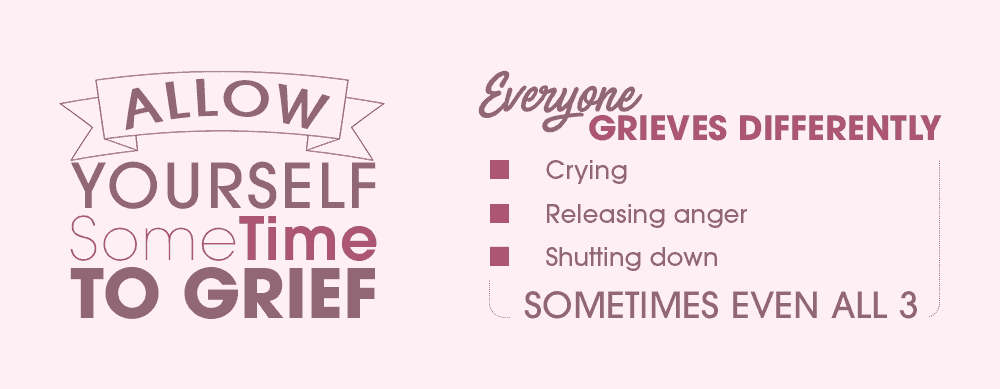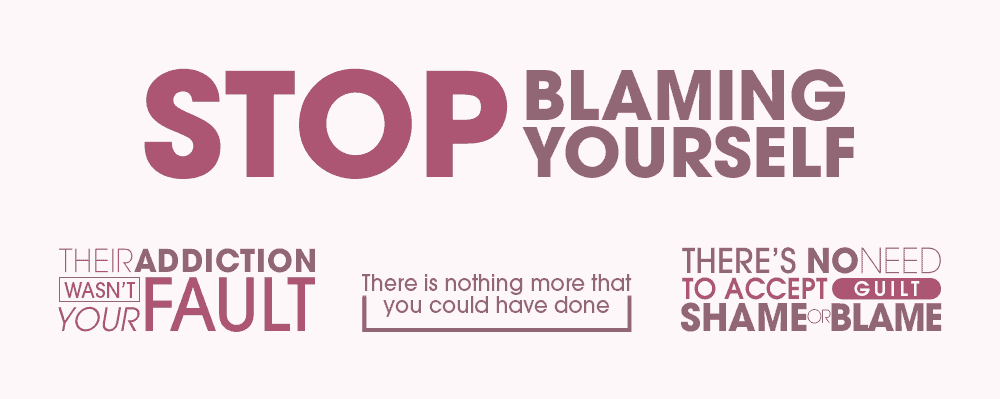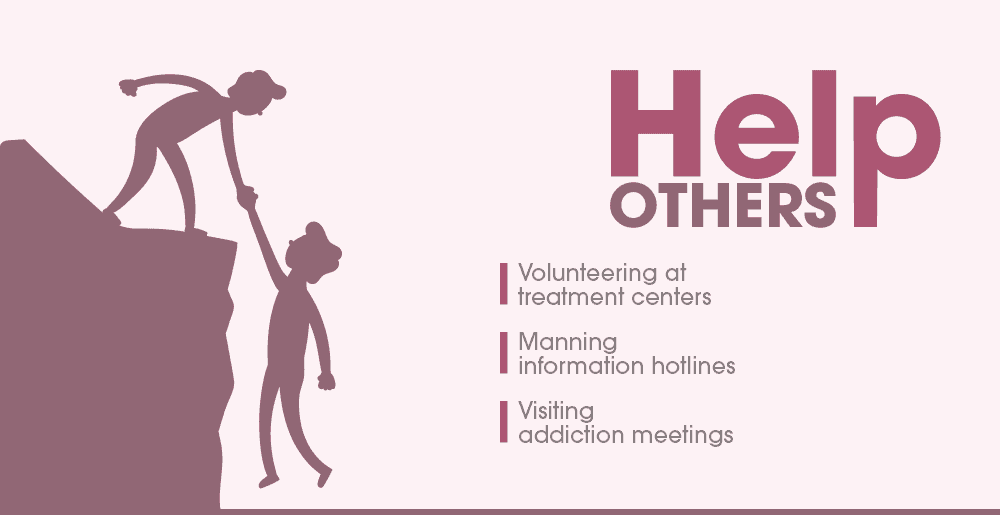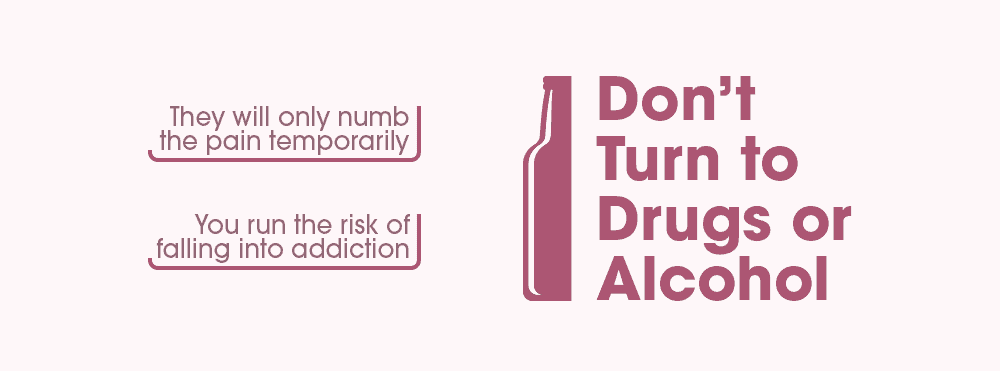“There is a sacredness in tears. They are not the mark of weakness, but of power. They speak more eloquently than ten thousand tongues. They are the messengers of overwhelming grief, of deep contrition, and of unspeakable love.” ~ Washington Irving
Heart Breaking Drug Overdose That Changed My Life
I never thought that I would have to face the reality of losing my son to a drug overdose. We tend to see the ones we love in the best light, and I always firmly held the belief that he would, one day, overcome his addiction completely. Like many in his situation, my son had better weeks and months, when it looked like he may have been able to kick the drug habit altogether. Everyone I talked to, from support groups to counselors, told me that it was possible. The addiction itself would not go away, but it was possible that my son would be able to get the help that he needed not only to get sober, but to stay sober the rest of his life. But that is not what happened.
“We treat both addiction and co-occurring disorders and accept many health insurance plans. Take a look at our inpatient program.”
Drug Overdose Death of My Son
Instead, the addiction grew too strong and too fast for my son to handle. He passed away just over three years ago due to a drug overdose on his drug of choice. Of course, we saw the signs and symptoms of heavy addiction. This is why we tried getting him the treatment he needed again and again. We knew his addiction was detrimental to his health, and certainly saw the way it was detrimental to his relationships – including his relationship with us. Even if you know what to say to an addict you love, they may not hear it. That’s the tragedy of losing someone you love to a drug that takes over their mind and body. What we did not see coming was his death from a drug overdose. Maybe it was denial, at least in part, but I simply did not even think of it as a possibility. As a result, it took a long time to forgive myself for the death of my son. It is no easy thing to cope with the grief experienced after the loss of a child or loved one, I know. I also know that my experience is not unique. I know that thousands of parents have lost children across the country to an epidemic of accidental drug overdoses. If you have lost a loved one to drug overdose, maybe some of the following suggestions will help you cope as they have helped me over the past several years.
#1 – Let Yourself Grieve the Loss of Your Child
It will not do anyone (including yourself) any good to simply shut down. Grief manifests in many different ways. Some will cry, some will lash out in anger, some will completely shut down, and some will cycle through all three and more. While seeing a counselor, or even talking to a supportive friend, can help you deal with your grief in a healthy way, it is important to realize that grief is not a weakness. Tears are not a failure to cope. They are part of the process, and often the very first step toward overcoming grief altogether. Because of the stigma associated with drug addiction, many family members grieving the loss of a loved one to a drug overdose may not even allow themselves to grieve their loss. Do not let guilt and shame stop you from grieving altogether. Thankfully, there are many resources available to families who are coping with the death of a loved one to a drug overdose. Whether you contact a counselor in your area or connect with a support group, consider reaching out to others to help you through the grieving process. Rebuilding relationships in recovery is a necessary part of the process.
#2 – Release Yourself from Self-Blame
In coping with the loss of a child or a loved one to a drug overdose, it is important to understand addiction for what it truly is: a mental disease that can be treated, but not cured. We aren’t always equipped to know how to help significant other with addiction. We can try our hardest and even take all the right steps but if they aren’t willing to help themselves, we can’t help them either. For a long time, I blamed myself for the death of my son. I asked myself what I could have done different or better, what would have saved his life. But eventually I came to an important realization: I couldn’t have done anything differently. It is not my fault that my son overdosed on drugs, nor is it the fault of anyone else. If you start to feel this kind of self-blame, take the time to remind yourself of the following truths:
- It is not your fault that your loved one was addicted
- It is not your fault that your loved one overdosed
- There is nothing more that you could have done
- Experiencing grief does not mean accepting guilt, shame, or blame
#3 – Consider Doing Something to Help Others Avoid Overdose
Taking action may not be for everyone, but doing something to help other drug addicts and their families avoid the same fate can go a long way toward helping you deal with your own loss. For me, this meant volunteering for a center that provided quality drug and alcohol abuse information to the community. There are many nonprofit organizations that involve volunteers in their services, from manning drug information hotlines to staffing information centers. Of course, this was not easy and did not come right away. It was only after a couple of years that I was able to learn how to cope with the loss of my son and turn my grief into something productive for others. This is not meant to pressure you into doing something you do not want to do, but instead a suggestion for keeping yourself busy while simultaneously providing help to those who are facing a similar situation that you experienced first hand.
#4 – Join A Support Group
My grief for the loss of my son through a drug overdose is still hard to articulate. A part of me died with him. I was dealing with a drug addict spouse after our son died because my husband couldn’t handle the pain. Life was overwhelming and I was not coping well. Part of the difficulty of losing a child to a drug overdose is the stigma attached to it. You really have a hard time talking to others who haven’t experienced it. I felt guilt, anger, hopelessness, and a sense of shame. I felt isolated and didn’t want to face anyone I knew. This is where attending a support group really helped me. The parents in the group were going through what I went through. Having someone understand my struggles was helpful in healing my heart. At first, I joined a support group online because I wasn’t ready to talk to people face to face about my pain. The benefits of joining a support group for me was that I felt less alone in my grief. Finding a support group was easy enough. I joined the Compassionate Friends online community. There was family support for all members which was really helpful. There was a lot of resources online and a helpful group of people that got me opening up about my pain. They also have chapters all over the U.S. so I started to attend some of the meetings in my area. I found this group helpful for not only opening up to the death of my son due to overdose. I also got the tools to teach me how to deal with a recovering drug addict husband.
“Get your loved one the help they need. Our substance use disorder program accepts many health insurance plans, this is our residential program.”
GRASP (Grief Recovery After Substance Passing) was available in my area. They hold meetings with an emphasis on understanding and compassion. Here, I was able to find support and also support others who lost someone they loved to a drug overdose. Knowing I wasn’t alone was a priceless gift. I also joined their facebook page where I was able to connect with people online. Sometimes, I just needed to talk to someone ‘right now’ and one of the members were always available.
#5 – Don’t Abuse/Turn to Alcohol or Drugs
Like I mentioned, my spouse had a hard time coming to terms with the death of our son. This caused him to repress the feelings he had. It became so uncomfortable for him that he started to use prescription drugs to manage his anxiety. In a letter to my drug addict husband, I asked him to seek help and stop abusing drugs to numb his pain. It was equally as hard for me to deal with losing a son to a drug overdose. Turning to drugs and alcohol prolongs the grieving process. Eventually, it’s going to surface regardless of how much you numb yourself. It’s hard to cope with the feelings that arise but I firmly believed that taking the route my son did use drugs made very little sense. I wanted to heal and I knew it would take feeling the intensity of the situation to get there. My husband’s journey to healing was much more difficult and took much longer. He not only had to overcome his addiction but he had to go through the grieving process he had avoided. Turning to drugs and alcohol will only make things worse despite the instant gratification of numbing yourself.
#6 – Give Yourself Time to Heal
The grieving process that I went through from the death of my son was intense. I actually tried to go to work after the funeral but nothing felt okay in me. That was obvious to everyone at my workplace and thankfully, my boss told me to take the time I needed to heal. I almost didn’t like the insinuation at the time that I was not okay. I guess I didn’t want to see it, still going through the denial that my son had died from a drug overdose. I felt pressured to feel better sometimes. I wanted to be okay but what I realized is you can’t rush the process. My husband went back to work. He didn’t want to talk about his feelings and it caused him to start abusing prescription drugs. I didn’t know how to help my husband with his drug addiction because I was too overwhelmed with grief. Again, it would take time for me to find the power and drive for life again to help anyone but myself.
How to Know if Your Family Member is at Risk of an Alcohol or Drug Overdose
When I realized my son was addicted to heroin, it took a toll on me. I found paraphernalia in his room and at first, I didn’t know what it was. Looking back, I think I was in denial. His whole personality had changed and I knew something was very wrong. Me and my husband were pulled into the dark abyss that our son lived in. I would find out later that this probably wasn’t the right way to manage the situation.
“We accept many health insurance plans. Get your life back in order, take a look at our residential program.”
He would steal money and skip out on school. He was sick a lot which we now know was actually him going through heroin withdrawal. He stopped playing sports and fell out with all of his friends. There were so many consequences that lead to his drug overdose. He also showed many of the common signs of a drug addict. These include: Cravings – His cravings for heroin got worse as his addiction developed. Physical dependence – He became physically dependent on heroin because he was using so regularly. This brought on changes to his physiology. He would begin to suffer when heroin wasn’t in his system and he had a hard time functioning. This is when he would be too sick to go to school which increased throughout the addiction. Tolerance – As my son’s addiction progressed, he became more tolerant to heroin. He needed more to get the desired effects. This is a contributing factor for heroin overdose deaths. Withdrawal symptoms – When my son didn’t have heroin to use, he would go through withdrawal symptoms. Poor judgment – My son was a sweet person. Heroin addiction made him do things that were out of his character. I would later realize that he had stolen a lot of valuable items from our home to pay for his heroin addiction. When to give up on an addict is not for me to say but there were times I almost turned my back on my son for the cruel things he did under heroin addiction. He was constantly lying and committing small crimes. Drug-seeking – My son spent most of his time trying to get drugs. He would either be high, coming down, or looking for drugs. Financial trouble – My son was asking us for money all the time. When we gave him money, it would be spent the same day and he’d be asking for more. I’ve since learned that people will go beyond their budget in order to purchase drugs. Neglected responsibilities – With my son, he stopped attending practices for sports and stopped caring about his studies. He would often be caught using heroin when he should have been attending certain activities. Associating with unhealthy people – My son changed his friend base. He once had good friends that were a positive influence on him. His new friends were shady and I’m sure they all did drugs in one way or another. I didn’t feel comfortable having them in our home. They isolate themselves – Near the end, my son became quite isolated. He tried to hide his drug problem from everyone. Drug addicts feel ashamed about their problem. They know the stigma associated with drug addiction. He became depressed, anxious, and paranoid. Heroin drug overdose deaths are the most prevalent. If someone you love is abusing heroin, this is a major concern. It’s important to know what the signs of heroin use is so you can reach out to your loved one right away. The reality is, someone addicted to heroin is between 6-20 times more likely to die in comparison to the general population. Here are the specific signs of heroin use and addiction:
- Drug paraphernalia.
- Using street slang for heroin.
- Missing money and other valuable items.
- Problems with the police.
- Track marks
- Chipping, (on and off heroin use)
My son got moody and aggressive. He withdrew from the world and heroin became the only thing he could see.
What to do if you Think Your Spouse or Child is at Risk of Drug Overdose
The physical signs and behaviors that my son was showing made it apparent that he was lost in his addiction. It’s hard to know what to say to an addict you love because your heart is so invested in them. An intervention can be helpful because you have a professional that guides you through the process. You are more easily able to focus on the goal which is to get the person you love into rehab. It could just be what saves their life. If you have an indication of what drug your loved one is taking, find out everything about it. Stick only to facts and try not to let opinions seep into your mind. If you do open up to friends, they may try to give you advice based on little or no knowledge. I did this and it clouded my judgment. What you need to find out is the characteristics and traits of the specific drug you suspect they’re using. Attending meetings like Al-Anon can be helpful. It helped me talk to others that were going through similar situations. They gave me hope and many tools to manage life with a son who was addicted to heroin. It may not help you and it certainly didn’t help my husband but for me, it was good to be able to talk about what I was going through. Why do addicts hurt the ones they love was a common topic at these meetings, not my problem alone. The belief of Al-Anon meetings is that it’s hard to get control of your life until you surrender to something bigger than yourself. I felt that I was entitled to my own beliefs on what that bigger power was for me. A professional addiction counselor is recommended if you see that your loved one is out of reach. It should be a counselor that specifically deals with addiction, not a family therapist. If you can speak with a counselor that has gone through a similar situation to your loved one, it can help a great deal. It’s a good idea to have your loved one be removed from the home and get the addiction treatment they need. Equally as important is to take part in some family therapy. Families are deeply connected and a component to someone successfully recovering from addiction. The National Institute on Drug Abuse, along with the US Department of Health and Human Services strongly recommend family therapy with a substance abuse treatment plan.
What to Do in Case of a Drug Overdose
I wish I had known what to do when I found my son unconscious. When you act quickly upon finding someone overdosing from drugs, you can save their life. If you find someone you love who is experiencing a drug overdose, there are certain things you should do. They include:
- Stay calm.
- Call an ambulance immediately.
- If your loved one is still breathing but not conscious, lay them on their side. Ensure that the airway is open. Do this by tilting the head back and lifting the chin. Continue to check on their breathing until the ambulance arrives.
- Don’t try to give them anything to eat or drink.
- Bring whatever drugs or paraphernalia might be around them so the doctors know what kind of drug overdose they are treating.
There is no amount of time anyone can put on you to get past losing your child. I was confused for weeks and angry for months. This was part of the process of healing and it did take a long time to get through the grieving process. I will always miss him and sometimes grief spurts occur today but I can manage my emotions. I see my strength to get through emotional trauma. I let go of trying to be perfect through the grief. I was a mess but I felt what needed to be felt and took the time I needed. This is a necessary part of healing. Make sure to spend the time that you need to come to terms with how you feel. 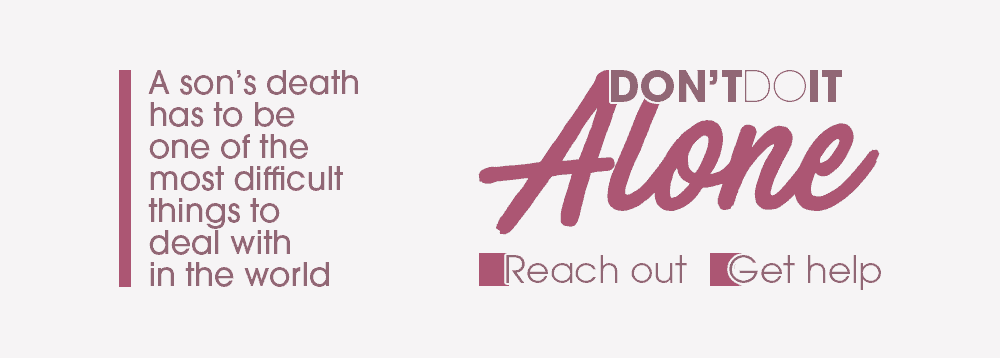
What Did you Think About This Blog?
Give it a Rating!


